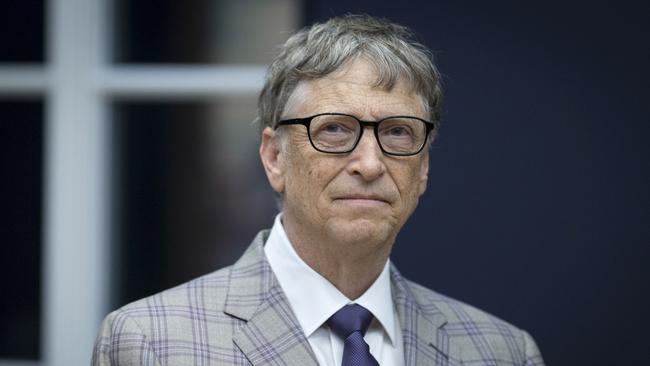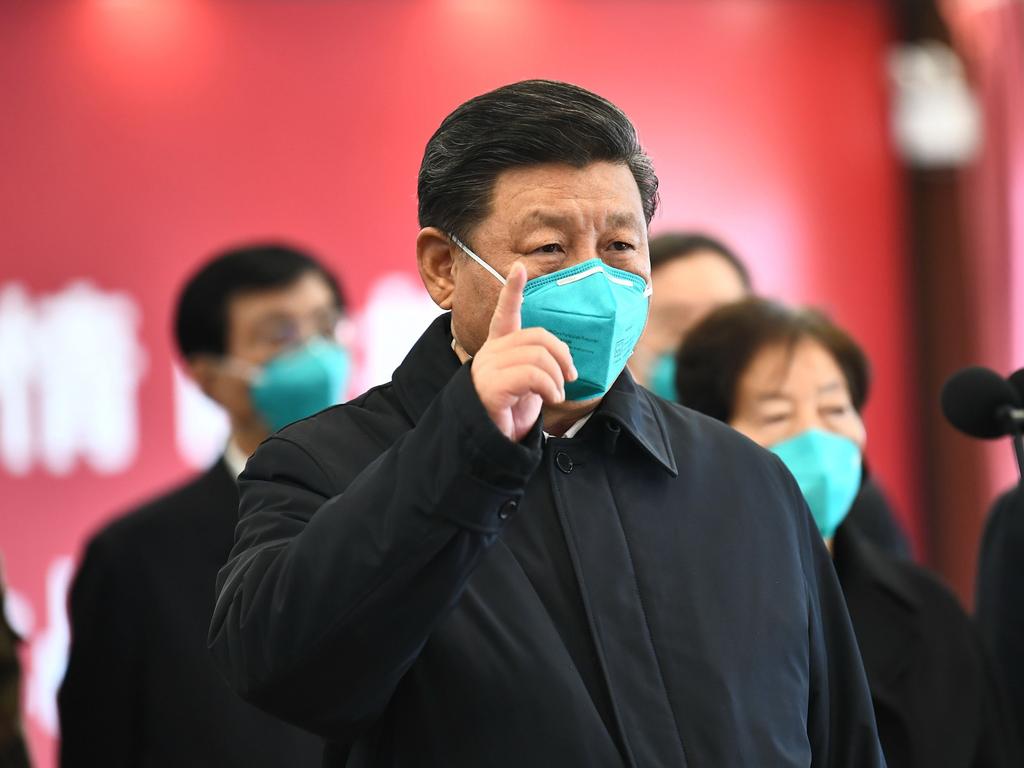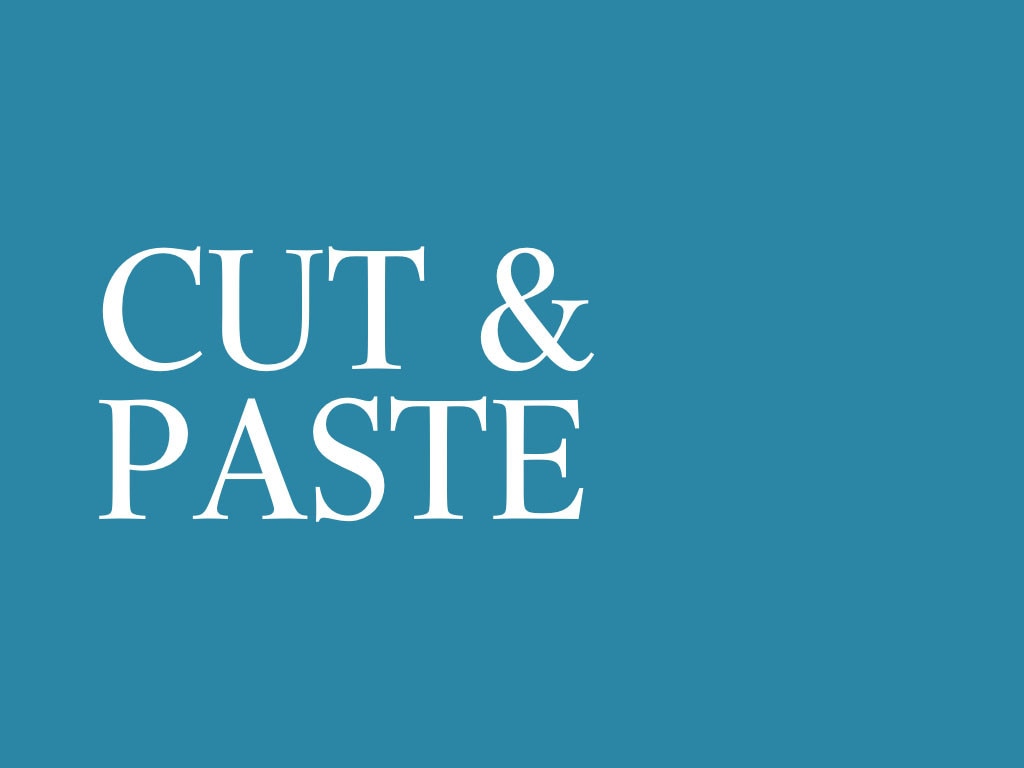Bill Gates is targeted by social-media mobs
Attacks on the Microsoft co-founder have intensified and come from a broad range of combatants including antivaccine groups and conspiracy theorists.

Bill Gates last week posted a three-second video on Instagram of himself hanging a sign in a window reading “Thank you health care workers.” Over the following days, the post was pelted with hundreds of thousands of comments painting Mr. Gates as partisan, accusing him of crimes against humanity and linking him to various conspiracy theories involving vaccines, the World Health Organisation and implanted microchips.
As one of the richest men on earth and a vocal public-health advocate, Mr. Gates has long been a target for online trolls. But in recent weeks, the social-media attacks against the Microsoft Corp. co-founder have intensified and come from a broad range of combatants including antivaccine groups and conspiracy theorists who link the novel coronavirus with fast wireless technology known as 5G, a theory that has been debunked.
The attacks accelerated this week after Mr. Gates criticised the US decision to halt funding to the WHO, a decision the Trump administration said was due to the organisation’s handling of the pandemic. His family philanthropy, the Bill & Melinda Gates Foundation, is the second-largest financial backer of the WHO after the U.S.
In the 24 hours after Mr. Gates’s comments, his Twitter account was mentioned at least 270,000 times -- more than 30 times more than average -- mainly by angry supporters of President Trump, according to Clemson University researchers. Mr. Gates’s Instagram post from April 5 drew an additional 45,000 comments in that same 24-hour period. The post now has more than 225,000 comments.
Social-media platforms remain fertile ground for virus-related conspiracies and online harassment, despite repeated pledges by the companies to crack down on such activity. The episode underscores the tense, politicized nature of debates around the new coronavirus, which experts at times have struggled to explain. Millions of Americans have lost jobs in the pandemic, making government handling of the crisis intensely personal.
“I’ve never seen a time where more mis- and disinformation has flowed than this coronavirus period,” said Sam Woolley, an assistant professor at the University of Texas at Austin who has studied disinformation for nearly a decade.
Some antivaccine activists and conspiracy-minded posters encouraged their followers across social media to attack Mr. Gates on Instagram, a form of harassment called “brigading” in which people co-ordinate attacks and hijack conversations online, according to a review of accounts. This week, one Instagram account told its 52,000 followers that “it wouldn’t be a bad thing for all of us to go visit Bill Gates Instagram and let him know what you think.” A spokeswoman for the Gates Foundation declined to comment.
Researchers say many of the conspiracy claims are amplified by what appear to be automated accounts, or bots, which platforms have promised to minimise.
“Whenever science intervenes to stop a disease, there’s often an adjacent outbreak of misinformation,” said Mark Suzman, CEO of the Bill and Melinda Gates Foundation. “These falsehoods can spread faster than the disease itself -- and cause real harm,” he said.
“COVID-19 is infectious and deadly enough. We don’t need misinformation to make it even deadlier,” he added. “Right now, one of the best things we can do to stop the spread of this disease is spread the facts.” A spokeswoman for Facebook Inc., which owns Instagram, said the company is “looking at this behaviour carefully to determine whether it violates our policies. People on our services are allowed to speak freely, and do so in an organised way, but we remove accounts that are fake or designed to mislead.” The company also said Thursday that it would start notifying users who engaged with misinformation on its platforms, and would guide those individuals to more authoritative resources, including the WHO.
Mr. Gates has appeared on television and talk shows such as The Daily Show to discuss the pandemic and the ways it might change daily life. The Gates Foundation has committed about $250 million to research testing and treatments for the new coronavirus.
Last month, Mr. Gates did a question-and-answer session on Reddit during which he predicted that people would need “some digital certificates to show who has recovered or been tested recently or when we have a vaccine who has received it.” Shortly after, social-media posts appeared falsely claiming that Mr. Gates wanted to implant microchips in people, according to several Facebook fact-checkers who flagged the claims as false.
Misinformation about Mr. Gates started to ramp up last week, said Rory Smith, a research manager at First Draft, which supports research into online misinformation campaigns and is supported by companies including Facebook and Alphabet Inc.’s Google. Researchers at the non-profit said they noticed more conspiracy theories within Facebook and WhatsApp groups across some African countries. Some of the posts read, “avoid wearing blue masks” because of their supposed affiliation with Gates Foundation.
Another post in French started circulating urging all Africans to avoid vaccines made by Mr. Gates, the researchers found. The post inaccurately attributed the advice to Didier Raoult, a French doctor who has sparked controversy recently over the use of an antimalarial drug to treat COVID-19, they said. Mr. Raoult couldn’t be reached for comment.
On Twitter, several people with large followings said Mr. Gates was in cahoots with Anthony Fauci, the director of the National Institute of Allergy and Infectious Diseases and senior member of the White House Coronavirus Task Force, according to VineSight, a start-up that hunts for disinformation on social media. Dr. Fauci has been accused, without evidence, by right-wing activists and conspiracy theorists of secretly undermining Mr. Trump’s efforts as part of a so-called Deep State within the U.S. government.
Some popular accounts on YouTube, owned by Alphabet, also have pushed theories about Mr. Gates and Dr. Fauci. Shiva Ayyadurai, a Republican Senate candidate from Massachusetts, was featured in one such video this week, racking up 6.6 million views, claiming that Dr. Fauci was part of the Deep State and plotting with Mr. Gates. Mr. Ayyadurai didn’t respond to a request for comment.
Last month, London’s Institute of Strategic Dialogue said in a report that YouTube videos and comment sections formed “a hub for coronavirus conspiracy theories.” The Wall Street Journal flagged three videos sharing conspiracy theories about Mr. Gates to YouTube. The company removed one of the videos, which equated coronavirus with the common flu. YouTube said the other two videos were considered borderline and wouldn’t be featured prominently in search and recommendations.
In separate statements, YouTube and Twitter said they are working harder to remove or minimise coronavirus misinformation from their platforms. Twitter said it would remove conspiratorial posts found to be spread through co-ordinated, manipulated behaviour.
“We’re prioritising the removal of COVID-19 content when it has a call to action that could potentially cause harm,” a Twitter spokeswoman said. “We will not take enforcement action on every tweet that contains incomplete or disputed information about COVID-19.” Tweets targeting Mr. Gates often originate from legitimate accounts but those posts are then amplified by what appear to be automated accounts, or bots, according to VineSight. On some popular tweets, bots may account for between half and two-thirds of the retweets, according to VineSight.
Mr. Gates’ defence of the WHO this week kicked up a new wave of online attacks. Trolls flooded Mr. Gates’ other Instagram posts, going back to his first Instagram message in August 2017. They also swarmed the accounts of some celebrities who had shared content about Mr. Gates, including the comedian Ellen DeGeneres and Daily Show host Trevor Noah.







To join the conversation, please log in. Don't have an account? Register
Join the conversation, you are commenting as Logout